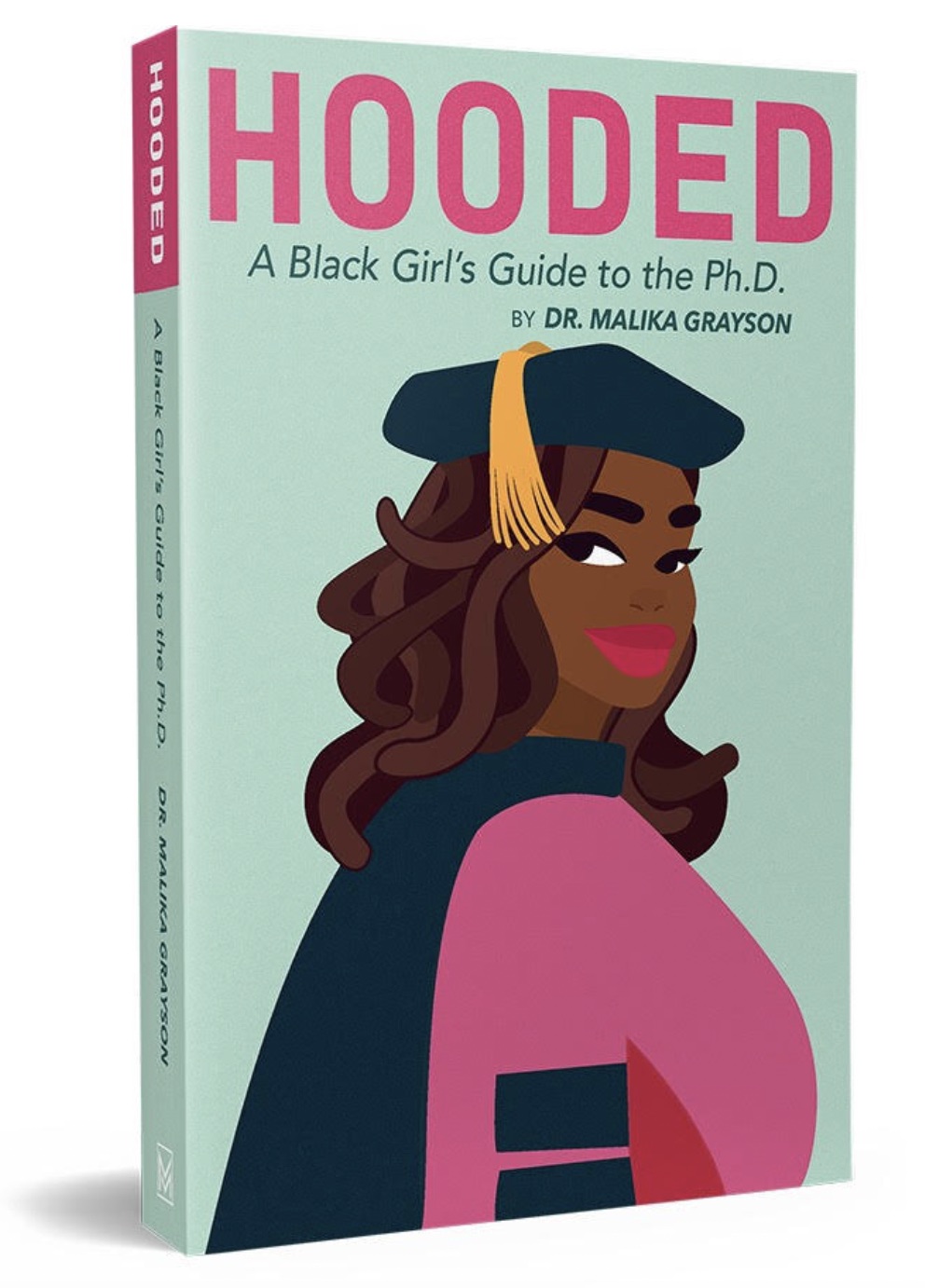Cultivating empowerment and belonging through mentorship and self-advocacy in science: A fireside chat with Dr. Malika Grayson.
In April 2023, BIOME hosted Dr. Malika Grayson, founder of STEMinist Empowered LLC, an organization focused on empowering women of color as they navigate through graduate-level STEM education.

Image of Dr. Grayson’s book, “Hooded: A Black Girl’s Guide to the Ph.D.”
Dr. Grayson is a Fortune 100 global speaker, #1 global bestselling author of “Hooded: A Black Girl’s Guide to the PhD”, and a program manager at Northrop Grumman Corporation. In our fireside chat, Dr. Grayson shared some of the challenges that she faced during her academic training and how they led to the founding of STEMinist Empowered LLC and her book. In addition to sharing her experience, she also offered wisdom on overcoming imposter syndrome and guilt-free self-advocacy in mentorship.
Dr. Grayson grew up in Trinidad and Tobago and left home to pursue a bachelor’s degree in physics from Adelphi University followed by a Ph.D. in Mechanical Engineering at Cornell University. During her graduate studies, she discovered that she had a learning disability called central auditory processing disorder (CAPD) that made it difficult to process information and take notes at the same time. With the support of a personal psychologist and a supportive graduate mentor, she was able to adjust and adapt to a new learning scheme that allowed her to successfully complete her program.
Dr. Grayson did not always view herself as a leader, although she had aspirations of becoming a scientist. As the second black woman to graduate in Mechanical Engineering from her institution, she felt empowered to support women of color who wish to pursue graduate degrees in STEM with her personal experiences, which birthed her mentorship program STEMinist Empowered LLC and her book, “A Black Girl’s Guide to the PhD”.
Shortly after successfully launching her career as a global speaker, Dr. Grayson experienced imposter syndrome, which caused her to retreat inward until she obtained adequate help to overcome this challenge. In our chat, she shared advice on looking out for these challenges and leveraging mentorship resources to overcome adversity.
Dr. Grayson is a champion of empowerment and self-advocacy in mentorship. In our chat, she shared her experience with mentors who facilitated her sense of belonging within her organization. These actions included: acknowledging her academic title, spotlighting her voice at meetings, and facilitating ways for her to publicly share remarks. The mentor-driven empowerment that she experience built her confidence and made her feel belonging in an organization that was comprised of largely non-marginalized individuals. Dr. Grayson cautioned that on the road to self-advocacy, it is also important to be on the lookout for unfounded feelings of guilt or selfishness. Furthermore, she argues that one cannot be selfish in seeking empowerment in a way that is honest, mutual, and respectful.
In academic settings where mentorship education and development are often de-emphasized, Dr. Grayson underscored the importance of these skills across all disciplines. She felt that the focus on research accomplishments may account for the reduced emphasis on mentorship education and development.
Among some of the important features of mentorship, Dr. Grayson shared the need for mutual respect and trust between a protégé and mentor, open communication and supportive feedback, and vulnerable personal relationships. In her example, although she was initially hesitant to communicate her learning disability to her mentor, she received positive feedback when she eventually did. Her mentor conveyed that he wished he had known sooner, and after having this context, Dr. Grayson was able to have a stronger mentoring relationship.
In her current position as a mentor to many protégés, she recommends maintaining a cordial mentorship relationship long after the transactional obligations between a protégé and mentor are complete.
Regardless of the success of a mentoring relationship, Dr. Grayson encourages all mentees to find alternative mentors to expand one’s network, and skills, and reduce job-related stress. This message was woven throughout our conversation and serves as a much-needed reminder to continue to ask for the necessary support to actualize one’s career goals, and to remain steadfast in recognizing the worth that we bring to our workspaces.
